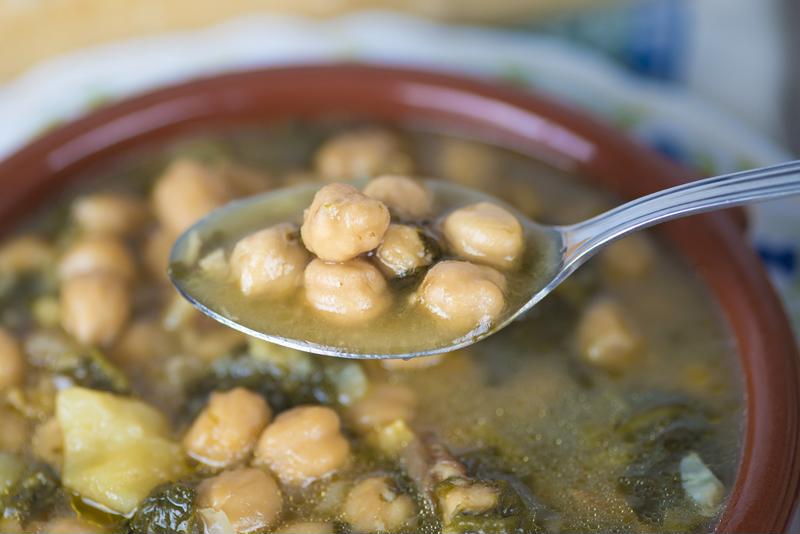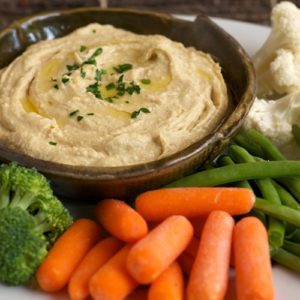Given Israel’s rich history and heritage, it makes sense that local food draws on tastes and traditions from a multitude of different cultures and ethnicities. Now, the dishes served at restaurants or sold by street vendors in Jerusalem, Tel Aviv and Haifa are gaining popularity at acclaimed American restaurants. Those attending culinary academy have many opportunities to explore these unique foods and delve into the cultural backgrounds behind them. In the process, they may find even more ways to bring Israeli blends of flavor into Western dining.
Israeli foods
The dishes commonly available in Israel show the influences of traditional Jewish cooking, as well as Middle Eastern, North African and Mediterranean cuisines. For instance, hummus, which has roots in Levantine and Egyptian cultures, is ubiquitous. The spread is commonly applied to a pita or serves as a side dish.
“Hummus is ubiquitous in Israel.”
Tabbouleh, also from the Levant, is a vegetarian dish including tomatoes, parsley, mint, onion and bulgur wheat topped by olive oil, lemon juice and salt. Falafel, which is Middle Eastern in origin, is also a staple for Israelis, with the fried balls of chickpeas available on nearly every street corner in major cities.
While fruits and vegetables are central to the Israeli diet, meat also plays a major part in many foods. Shawarma, from Levantine cuisine, is a common street food in which shaved lamb is served in a pita or laffa bread with toppings like hummus, tahini sauce and pickled mangoes. In Israel, many restaurants substitute in chicken, which is the most widely eaten meat in the country. As Serious Eats pointed out, Israel is a leading producer of Medjool dates, so these sweet, chewy fruits make their way into much of the region’s cooking, including cake and syrups. Locally grown olives frequently appear in salads, and olive oil is prominent in numerous dishes.
Another beloved dish is shakshuka, which features poached eggs in a sauce made with tomatoes, chilies, onions and cumin. Fresh fish is readily available as well, often caught in nearby bodies of water, like the Mediterranean, the Red Sea or the Sea of Galilee.
 Chickpeas are an essential ingredient in many Israeli foods.
Chickpeas are an essential ingredient in many Israeli foods.Eating Israeli in America
It is becoming increasingly easy to find high-quality renditions of such items in the U.S., thanks to the efforts of a few restaurateurs. As Saveur discussed, one chef who has done a great deal to popularize Israeli cooking in America is Michael Solomonov. He has spent much of his life traveling between the two countries and currently owns several Philadelphia restaurants, including Zahav. He is also the primary author of a cookbook with the same name, which teaches Western cooks to make meals inspired by the Middle East.
Zahav has been serving Israeli cuisine since 2008. Diners can begin with an appetizer of hummus and laffa prepared in a wood-burning oven. The small plates include options like tuna crudo made with the Levantine eggplant dish baba ganoush and the Middle Eastern herb mixture za’atar. For an entree, one can order a shashlik, a style of shish kebab popular in Israel, with either steak or chicken. The restaurant’s take on hummus in particular proved so popular that Solmonov opened Dizengoff, a spin-off establishment entirely devoted to the spread.
Alon Shaya is a New Orleans chef who has also found success by focusing on Israeli-inspired dishes at his restaurant, Shaya. Among the small plates are lamb kebab, falafel and crispy halloumi – a brined cheese of sheep’s or goat’s milk from Cyprus – served with caramelized celery root, pomegranate and winter greens. The large plates on offer include roasted chicken and lamb that is slow-cooked with feta cheese, walnut and pomegranate tabbouleh. Shakshuka is also available, made with a chermoula marinade. Chermoula is a mixture of pickled lemons, lemon juice, oil, garlic, cumin, salt and herbs that regularly appears in North African cooking.
Shaya explained to Eater that, while American and Israeli foods are very different, they similarly come from a melding of diverse peoples.
“I would compare Israel and America to each other in a way; they’re both melting pots,” he said. “They’re both made up of immigrant cuisines that have, through the years, come together and found a way to be appealing to people, like fajitas or California rolls or pepperoni pizza.”
These restaurants, among others, are bringing those unique combinations of traditions and ingredients from Israel to the U.S. Students in culinary arts programs will find plenty of inspiration in the work of chefs who are developing a market for fantastic Israeli-American dishes.





